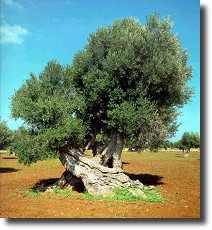WHY
WE CHOSE ORGANIC AGRICULTURE
 Nowadays organic farming is a
viable alternative to conventional agriculture, which uses synthetic fertilisers
and pesticides. It is regrettable to note that most of the food we eat is still
treated with chemicals at all stages of production, from seed preservation to
sowing, during plant development and for protecting plants from disease, insects
and the weather. Treatments continue up to and include the harvest and product
storage and processing. Not to mention GMOs (genetically modified organisms) and
all the other means people have used in their attempt to subdue Nature,
employing artificial weapons rather than the ones Nature herself provides.
Nowadays organic farming is a
viable alternative to conventional agriculture, which uses synthetic fertilisers
and pesticides. It is regrettable to note that most of the food we eat is still
treated with chemicals at all stages of production, from seed preservation to
sowing, during plant development and for protecting plants from disease, insects
and the weather. Treatments continue up to and include the harvest and product
storage and processing. Not to mention GMOs (genetically modified organisms) and
all the other means people have used in their attempt to subdue Nature,
employing artificial weapons rather than the ones Nature herself provides.
We as
human beings are a fundamental part of the ecosystem, but these “weapons” have
undoubtedly caused unwelcome repercussions for us, provoking the many forms of
damage so hotly debated nowadays. For example, plants may harbour traces of
pesticides, which could be harmful if we absorb them regularly through our food.
So what
can we do? The organic approach to agriculture is the only one that uses natural
methods.
We chose this alternative solution for our farm
years before it became
a widely accepted agricultural practice.
We think it
important to emphasise that organic farming does not mean leaving our olive
trees unattended to grow wild, but looking after them to ensure they grow strong
and healthy. This is achieved by using only natural products whose quality and
quantity will not have an adverse affect on the environment. In this way, year
after year, our trees develop greater natural resistance to disease and pests
and produce higher-quality olives.
An
example of organic methods? The olive fruit fly is a common pest that lays its
eggs in olive fruit; the larvae then eat the fruit from the inside. This causes
a serious drop in the quantity and the quality of the olives. We control the
olive fly by hanging pheromone traps on each tree, which attract the flies with
their odour. No synthetic products are sprayed on the trees, no chemicals, no
toxins and nothing that persists in the environment. This system is far more
effective that the four pesticide spray treatments normally used in conventional
farming!
WOULD
YOU LIKE A FEW MORE EXAMPLES?


 Nowadays organic farming is a
viable alternative to conventional agriculture, which uses synthetic fertilisers
and pesticides. It is regrettable to note that most of the food we eat is still
treated with chemicals at all stages of production, from seed preservation to
sowing, during plant development and for protecting plants from disease, insects
and the weather. Treatments continue up to and include the harvest and product
storage and processing. Not to mention GMOs (genetically modified organisms) and
all the other means people have used in their attempt to subdue Nature,
employing artificial weapons rather than the ones Nature herself provides.
Nowadays organic farming is a
viable alternative to conventional agriculture, which uses synthetic fertilisers
and pesticides. It is regrettable to note that most of the food we eat is still
treated with chemicals at all stages of production, from seed preservation to
sowing, during plant development and for protecting plants from disease, insects
and the weather. Treatments continue up to and include the harvest and product
storage and processing. Not to mention GMOs (genetically modified organisms) and
all the other means people have used in their attempt to subdue Nature,
employing artificial weapons rather than the ones Nature herself provides.